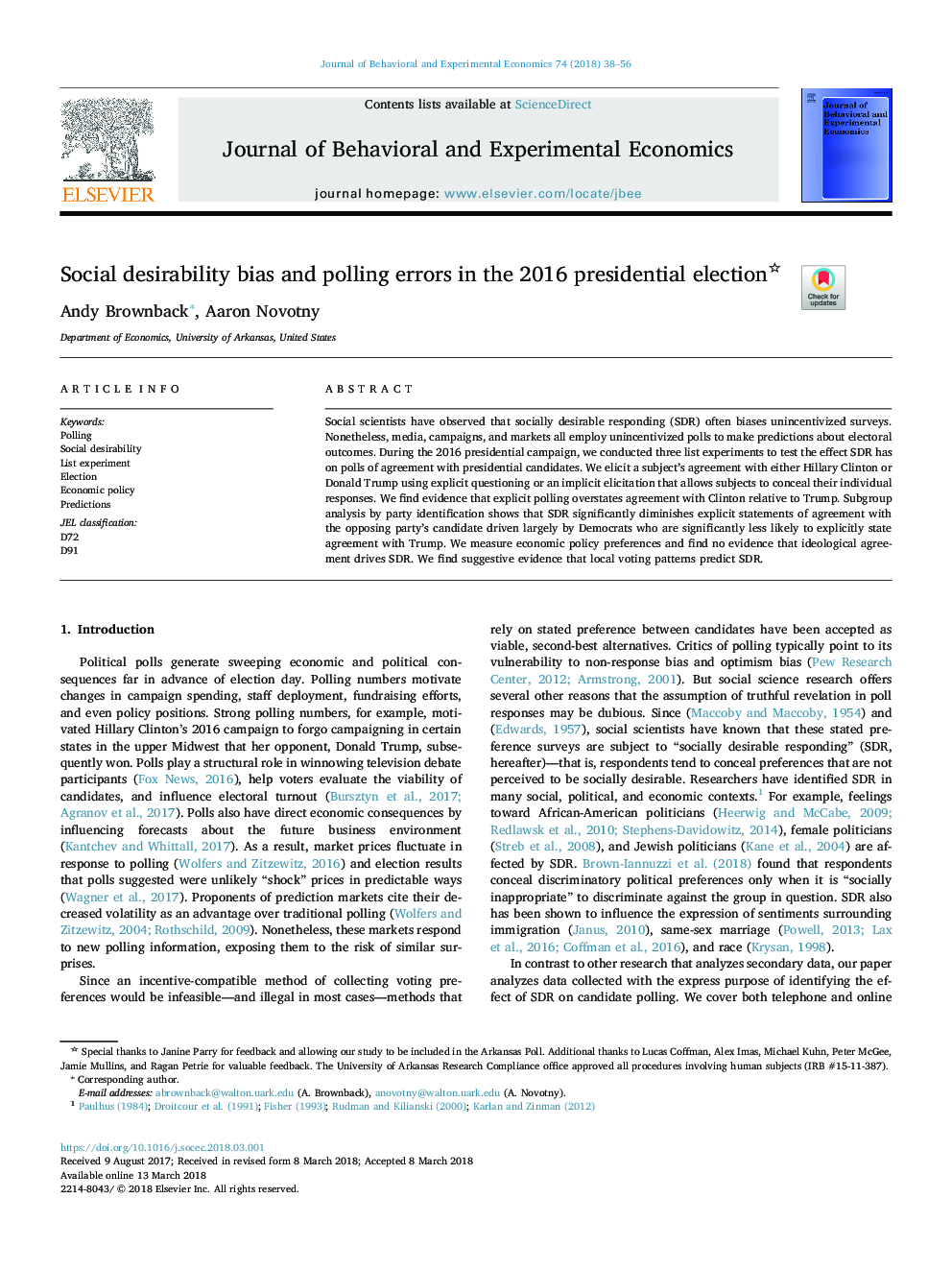| کد مقاله | کد نشریه | سال انتشار | مقاله انگلیسی | نسخه تمام متن |
|---|---|---|---|---|
| 7241950 | 1471540 | 2018 | 19 صفحه PDF | دانلود رایگان |
عنوان انگلیسی مقاله ISI
Social desirability bias and polling errors in the 2016 presidential election
ترجمه فارسی عنوان
تعصب مطلوبیت اجتماعی و خطاهای رای گیری در انتخابات ریاست جمهوری 2016
دانلود مقاله + سفارش ترجمه
دانلود مقاله ISI انگلیسی
رایگان برای ایرانیان
کلمات کلیدی
موضوعات مرتبط
علوم انسانی و اجتماعی
اقتصاد، اقتصادسنجی و امور مالی
اقتصاد و اقتصادسنجی
چکیده انگلیسی
Social scientists have observed that socially desirable responding (SDR) often biases unincentivized surveys. Nonetheless, media, campaigns, and markets all employ unincentivized polls to make predictions about electoral outcomes. During the 2016 presidential campaign, we conducted three list experiments to test the effect SDR has on polls of agreement with presidential candidates. We elicit a subject's agreement with either Hillary Clinton or Donald Trump using explicit questioning or an implicit elicitation that allows subjects to conceal their individual responses. We find evidence that explicit polling overstates agreement with Clinton relative to Trump. Subgroup analysis by party identification shows that SDR significantly diminishes explicit statements of agreement with the opposing party's candidate driven largely by Democrats who are significantly less likely to explicitly state agreement with Trump. We measure economic policy preferences and find no evidence that ideological agreement drives SDR. We find suggestive evidence that local voting patterns predict SDR.
ناشر
Database: Elsevier - ScienceDirect (ساینس دایرکت)
Journal: Journal of Behavioral and Experimental Economics - Volume 74, June 2018, Pages 38-56
Journal: Journal of Behavioral and Experimental Economics - Volume 74, June 2018, Pages 38-56
نویسندگان
Andy Brownback, Aaron Novotny,
